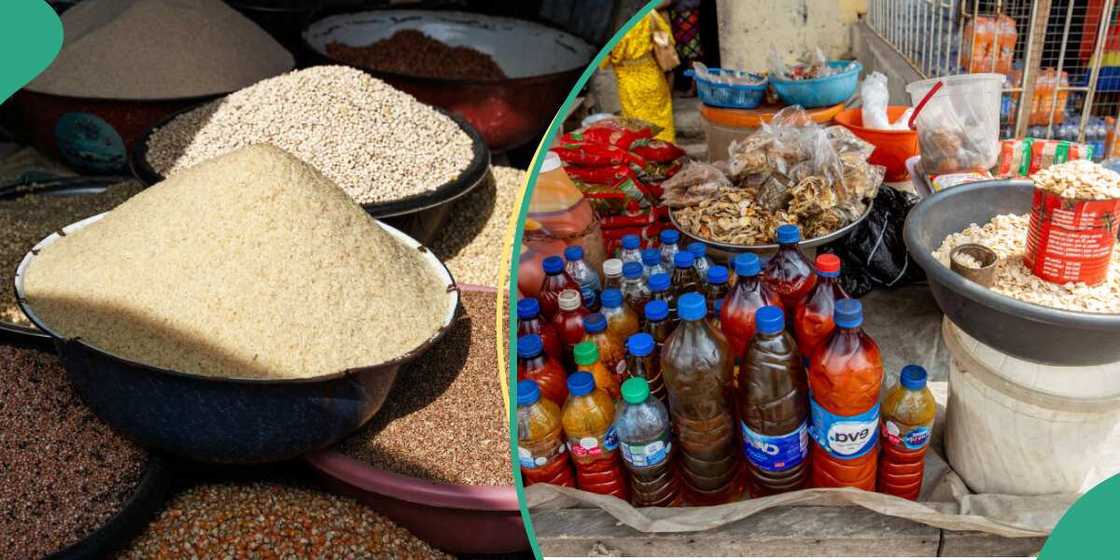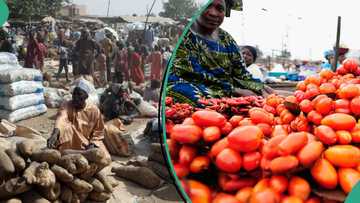“Inflation rises:” Kogi, Kwara, Akwa Ibom Lead Toughest States to Live in Due to Food Inflation
- Nigeria’s food inflation has hit a new high in the March 2024 general headline inflation record
- The National Bureau of Statistics says that food inflation for March 2024 stood at 40.01% compared to the February figure of 30.7%
- Kogi, Kwara, and Akwa Ibom recorded the highest food inflation, while Abia, Borno, and Nasarawa recorded the slowest rise in food inflation
PAY ATTENTION: The 2024 Business Leaders Awards Present Entrepreneurs that Change Nigeria for the Better. Check out their Stories!
Legit.ng’s Pascal Oparada has reported on tech, energy, stocks, investment and the economy for over a decade.
Despite the reported crash in commodity prices due to the strong performance of the naira against the dollar, food inflation in some Nigerian states has remained astronomically high.
Nigeria’s food inflation has continued its upward swing, reaching 40.01% in March 2024 compared to the 30.7% recorded in February 2024.

Source: Getty Images
Food items affected by inflation
The March figure represents a 15.5% rise yearly compared to the March 2023 figure of 24.5%.
PAY ATTENTION: Сheck out news that is picked exactly for YOU ➡️ find the “Recommended for you” block on the home page and enjoy!
The news comes as headline inflation for March 2024 rose to 33.2% in the review period, an increase from 31.70% in February 2024.
According to reports from the National Bureau of Statistics, the hike in food inflation was caused by a rise in prices of garri, millet, yam tuber, water yam, dried fish, mudfish, palm oil, vegetable oil, beef head, and liver.
Every month, the food inflation rate was about 3.62%, showing a 0.17% decline compared to the February rate of 3.79%.
The NBS says the average annual food inflation rate for the 12 months ending March 2024 was 31.40%, an 8.69% rise from the average yearly rate of change recorded in March 2023, which was 22.72%.
States with highest and cheapest food prices
The NBS report showed that food inflation hit the roof during the review period in Kogi, Kwara, and Akwa Ibom states.
Nasarawa, Borno, and Bauchi states recorded the slowest increase in food inflation.
BusinessDay reports that every month, March food inflation was highest in Abia, Cross River, and Bayelsa and slowest in Borno, Yobe, and Adamawa states.
Additionally, core inflation, which excludes the prices of unstable agricultural items and energy, stood at 25.90% in March 2024.
NBS said:
“On a month-on-month basis, the core inflation rate was 2.54 per cent in March 2024, up from 2.17 per cent recorded in February 2024. The average twelve-month annual inflation rate was 22.26 per cent for the twelve months ending March 2024; this was 5.04 per cent points higher than the 17.22 per cent recorded in March 2023.
Nigeria's food inflation high in Africa
Nigeria is one of the many African countries battling high food inflation, contributing significantly to its overall inflation.
According to the National Bureau of Statistics (NBS), Nigeria’s food inflation rose to 37.92% amid an overall inflation rate of 29.90$ for February 2024.
In a March 2024 report by NBS, food inflation jumped to 33.20%, the highest in years.
Analysts believe that despite inflation cooling in most Sub-Saharan African countries, it remains high compared to other countries worldwide.
Expert points the way forward on inflation
Social affairs commentator Joel Ukeje said that food inflation remains the arrowhead of overall inflation in the country.
He said that if the Nigerian government can rein in food inflation, it can control the overall inflation in the country,
“Forget the rising rate of the naira against the dollar. If the country cannot control food inflation, the naira’s appreciation will continue to be a mirage.

Read also
Access, Zenith, others sell dollar at new rates as naira breaks records, gains in official market
“The government should provide food subsidies to Nigerians and farmers. All the talk about opening the grain reserves is just a hoax, as it barely impacts the prices of food items in the market,” he said.
10 states with the highest food prices
Legit.ng reported earlier that the National Bureau of Statistics (NBS) has revealed that the food inflation rate in February 2024 was 37.92% yearly. This is 13.57% points higher compared to the rate recorded in February 2023 (24.35%).
This is 13.57% points higher compared to the rate recorded in February 2023 (24.35%).
On a month-on-month basis, the food inflation rate in February 2024 was 3.79%, 0.58% higher than in January 2024 (3.21%).
PAY ATTENTION: Donate to Legit Charity on Patreon. Your support matters!
Source: Legit.ng





